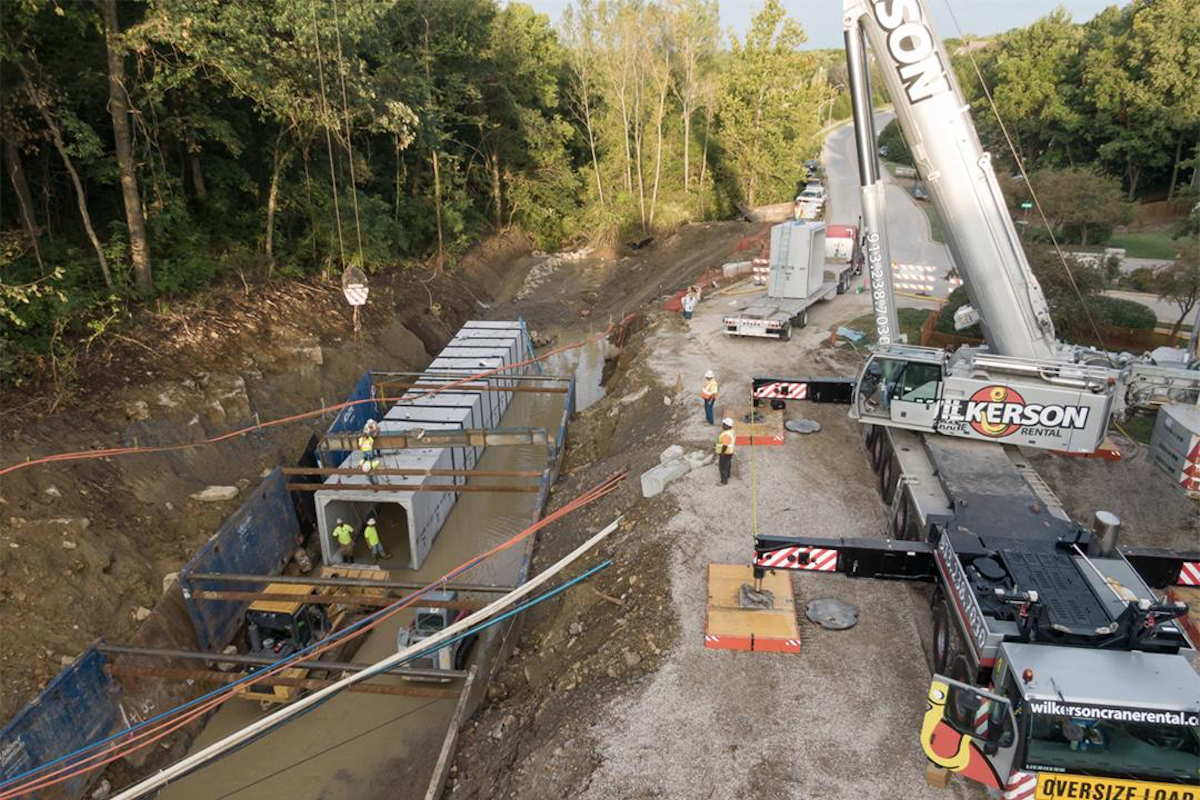“One thing is for sure, this infrastructure bill is going to create huge opportunities for companies in the construction ecosystem to grow and profit,” said Dara Castle, National Government Contracting Practice Leader at RSM.
The government is perhaps the best customer a contractor can have, according to Stephanie Johnson, Government Contracting Senior Industry Analyst and Valuation Services Director at RSM. The government always spends money and pays their bills, she said, even amid hard times.
But with new opportunities come new disciplines that contractors need to adopt to be successful.
“It's serious business – you have to know what you're doing,” Castle said. “You need to hire attorneys and consultants who can help you to navigate the regulatory environment successfully so that you can win and perform these contracts.”

| Your local Atlas Copco CMT USA dealer |
|---|
| Bane Machinery |
| Romco Equipment Co |
| Central Texas Equipment |
| Closner Equipment Co Inc |
| Cooper Equipment Co |
What else should contractors know before getting into business with the government? Here are some quick tips from the RSM team.
This is why it’s essential to work with someone experienced in reading and understanding government contracts.
“They need to understand what the regulatory clauses of the contract mean and have a clear understanding of how to comply with them,” said Johnson, adding that there should be clarity around whether funds are coming from the state or federal government. “Those new to the government contracting scene may see requirements they have not seen before and should ensure they have the ability to comply with them.”
“The criteria upon which the bid was selected involved a lot of design points and the local guys all bid on cost,” Maves said.
With all government contracts, Maves said that contractors should ensure they know what criteria are most important to the government. Contractors who bid on a contract must have the experience to meet those criteria.

| Your local Wirtgen America dealer |
|---|
| Kirby-Smith Machinery |
| Nueces Power Equipment |
A request for an equitable adjustment is a contractor’s proposal for an equitable increase to the contract price based on a change to the contract requirements.
“The contractor has to determine whether they think they're going to be entitled to payment for other costs,” said Cyndi Dunn, Senior Director in RSM’s government contracting practice. “Where a lot of contractors fall short is keeping the documentation of those records to come up with those costs to determine what their equitable adjustment should be and to be eligible to receive the additional money.”
“The contracting officer is the only one that can change the contract,” Dunn said. “Understand who controls that contract – the contracting officer versus that technical person in the field. Costly mistakes get made by thinking the technical guy in the field has the power and by not knowing how to make changes to a contract.”
“It’s a higher level of scrutiny than usual,” Maves said. In addition to security, it’s also a good idea to have data and reporting software. Johnson said that it’s important for contractors to understand historical data and costs to ensure the contract they’re bidding on is a good fit for them.
“The best contractors for these jobs know the data that's helpful for them to make these decisions,” she said. “They have the reporting and accounting systems so that when an RFP drops, they say, ‘We got this, let's roll.’”

| Your local ASV dealer |
|---|
| CLM Equipment Co |
Contractors who come from the commercial world often have a steep learning curve when it comes to documentation, according to Dunn.
“I can tell you horror stories of going back and trying to find records and receipts to help contractors come up with the required support for these requests for equitable adjustments,” Dunn said.
“They can even bring forth commercial business references that they have,” she said.
Contractors looking to win government contracts should ask themselves if they have the right management and staff in place for this kind of project. If not, would they be better suited for a subcontractor role? Those will also be plentiful in the wake of the new infrastructure bill.
When the government issues a request for proposals (RFPs), there is typically an opportunity for questions and answers, said Dunn, noting that it’s important for contractors to read the statement of work, attend open meetings, if offered, or submit written questions in the appropriate forum.

| Your local Link Belt dealer |
|---|
| Nueces Power Equipment |
| Central Texas Equipment |
“Don't be shy about speaking up and asking questions during the solicitation process – communication and understanding the scope of work is key to a successful project,” she said.
“The government dictates how business is done and what the timeline is,” she said.
Castle agreed, adding that contractors must play by the government’s rules. Dunn echoed this further, “On requests for bid, there are often very specific rules for how the proposal is to be submitted and what is to be included…It can even be as specific as the font size used in the proposal. Those that do not meet the rules may have their bid tossed out entirely.”
“Don't bid on one of these contracts without understanding what you have to do in your business to be compliant with the regulations,” Castle said. “Don’t bid on it if you don't understand what you’re signing up for.”
But those who do bid – especially those who hire the right advisors who can help them work through what they may not understand – can be very successful with government contract work.

| Your local Case Construction Equipment Inc dealer |
|---|
| Nueces Power Equipment |
| ASCO Equipment |
When a commercial contractor wins even a single government contract, Castle said they’re now a government contractor. This means that it’s easier to bid on future contracts. It also means a stable, predictable, and collectible cash flow, according to Johnson.
“By adding in the No. 1 customer in the world to your cash flow streams, you're adding in another kind of revenue stream to diversify,” Johnson said. “It's also a very transparent cash flow stream and investors love that.”
There’re plenty of opportunities for contractors of all kinds. This infrastructure bill will put out bids specifically for small businesses, minority-owned businesses, women-owned businesses, veteran-owned businesses, and of course, large contractors.
“The government doesn't stop building, contracting or paying just because the economy is bad,” Castle said. “As a matter of fact, they're likely to do more of it in a recession to spur the economy in a favorable direction. Doing business with the government is recession-proof.”



































































